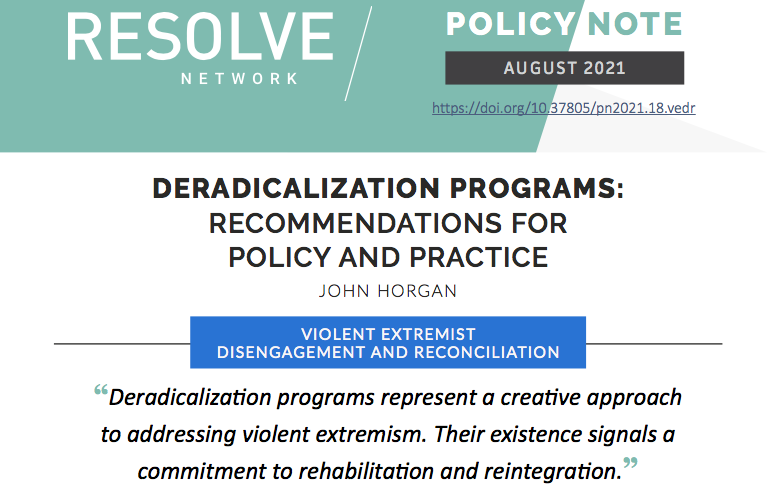Deradicalization Programs: Recommendations for Policy and Practice

Abstract
Involvement in violent extremism is not a one-way street. People can, and do, leave violent extremist movements. Understanding how and why they leave (or want to leave) constitutes actionable knowledge that brings immense practical benefits. Such knowledge may help in designing initiatives aimed at persuading people to leave violent extremist groups as well as reducing the risk of re-engagement in violent extremism in the future.
Deradicalization programs have much to offer but they are not a magic solution to a highly complex, fluid problem. Not everyone who engages in violent extremism is necessarily going to benefit from such interventions, and no program can ever expect to produce complete success. Yet, they continue to show promise. Deradicalization programs can be effective for some and, if subjected to greater evaluation efforts, may prove far more beneficial than is currently believed. Despite an abundance (and apparent increase) in programming, a continued lack of evaluation work both fuels skepticism and hinders our ability to believe that there is a strong future for these programs.
Suggested citation:
Horgan, John. Deradicalization Programs: Recommendations for Policy and Practice. Washington, D.C.: RESOLVE Network, 2021. https://doi.org/10.37805/pn2021.18.vedr.